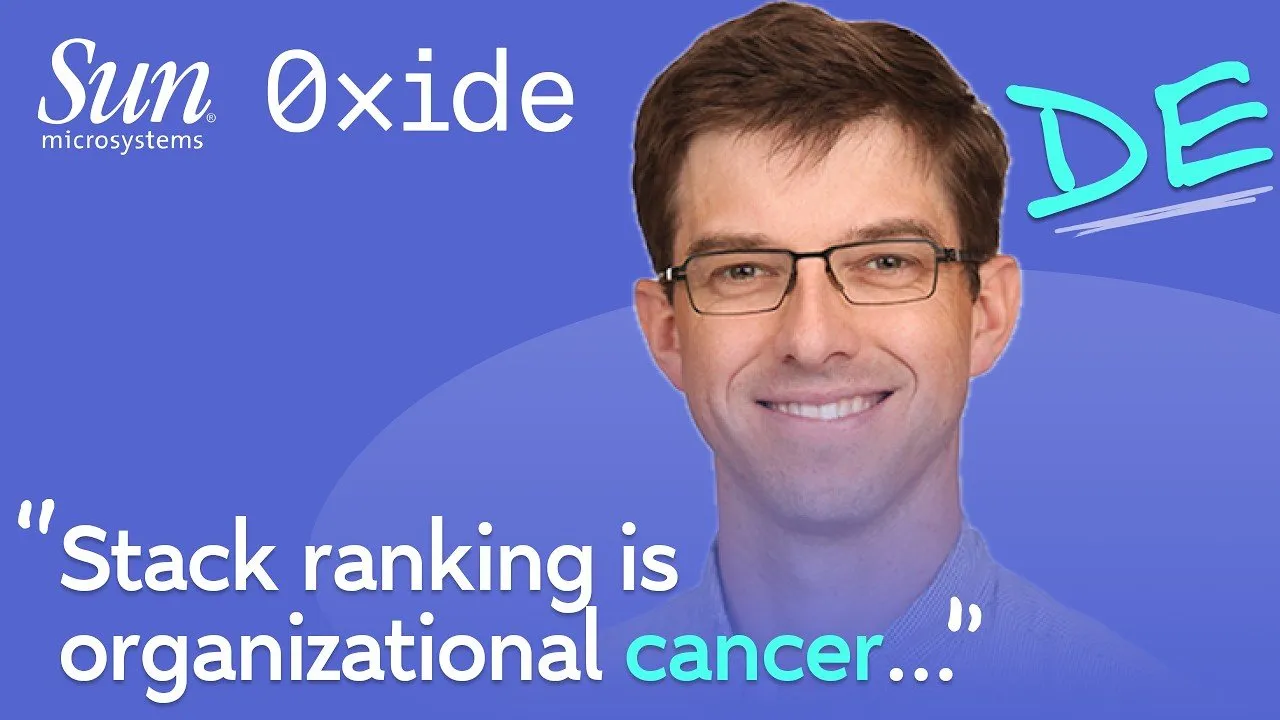Table of Contents
A catastrophic data breach exposes dating app users while celebrities drive marketing controversies and AI reshapes entertainment production pipelines.
Key Takeaways
- T app's massive security failure leaked 13,000 driver's licenses and user reviews, creating potential safety risks for women who reviewed dangerous dates
- Sydney Sweeney's American Eagle campaign sparked eugenics accusations, driving 10% stock gains and cultural debate about genetic messaging in advertising
- Astronomer's viral crisis became a masterclass in damage control through Gwyneth Paltrow's brilliant response ad generating 36 million views
- Netflix officially integrated AI tools into production workflows while IMAX partners with Runway AI for commercial film screenings
- Figma's upcoming IPO at $18.6 billion valuation provides massive liquidity event for venture capital firms after years of distribution drought
- Paul Graham advises against dropping out of college for startups unless pursuing extraordinary opportunities with exceptional founders
- Anonymous review platforms continue proving fundamentally flawed business models that inevitably result in abuse and security disasters
- Marketing campaigns require diverse perspective reviews to avoid cultural landmines that can explode into viral controversies
- Crisis management speed matters more than perfect messaging when controlling viral narrative cycles in today's meme-driven culture
Timeline Overview
- July 16 — Astronomer CEO caught in compromising situation at Coldplay concert, triggering viral meme cycle and corporate crisis
- July 25 — Gwyneth Paltrow's response ad for Astronomer goes live, successfully redirecting narrative within 9 days of original incident
- July 28 — T app data breach discovered, exposing unencrypted driver's licenses and dating reviews to potential bad actors
- Recent weeks — Sydney Sweeney American Eagle campaign launches with "great jeans/genes" wordplay, sparking cultural backlash over genetic messaging
- Current period — Figma raises IPO price range to $30-32 per share, signaling strong market demand for design platform at $18.6B valuation
- Ongoing — Netflix confirms AI integration in production pipeline while IMAX announces AI film festival commercial screenings
Data Security Disasters Expose App Development Incompetence
The T app catastrophe represents everything wrong with amateur software development in sensitive categories. This application, designed for women to anonymously review and rate men they've dated, suffered a breach exposing 13,000 driver's licenses alongside personal reviews about potentially dangerous individuals.
- The breach revealed completely unencrypted sensitive data that anyone could download, suggesting fundamental security incompetence rather than sophisticated hacking. Users' driver's license photos sat in plain folders accessible to basic web requests, demonstrating zero understanding of data protection principles.
- Anonymous review platforms consistently fail because they enable abuse without accountability, creating liability disasters for operators who promise safety they cannot deliver. Previous examples like Secret and Formspring resulted in suicides and widespread harassment before eventual shutdowns.
- The app maintained 4.6 million users and remained ranked number two on iOS behind ChatGPT despite the massive breach, indicating users either don't understand the security implications or haven't received adequate breach notifications.
- Women who reviewed dangerous men now face potential retaliation since those same men can identify their reviewers through the leaked data, creating real-world safety risks that extend far beyond typical data breaches.
- The company allegedly promised users that verification photos would be deleted after confirming female identity, but retained years of old data "for legal reasons" without informing users about this retention policy change.
- Apple's app store review process failed to catch fundamental security flaws in a top-ranking application, raising questions about platform responsibility for user safety in anonymous review categories.
The fundamental lesson remains clear: anonymous review systems at scale invariably become weapons for harassment while creating massive liability exposure for operators who cannot adequately protect user data or prevent abuse.
Marketing Controversies Ignite Cultural Warfare
Sydney Sweeney's American Eagle campaign demonstrates how innocent wordplay can explode into accusations of promoting eugenics when cultural context gets ignored during creative development.
- The "great jeans/genes" pun connected denim advertising to genetic inheritance, specifically highlighting blonde hair, blue eyes, and IQ as inherited traits while featuring Sweeney as the genetic ideal. Critics interpreted this as promoting Aryan beauty standards during a politically charged cultural moment.
- American Eagle stock rose 10% following the controversy, adding roughly $200 million in market capitalization despite vocal social media backlash from activists who labeled the campaign "Nazi propaganda" and "literal eugenics slapping everyone in the face."
- The backlash originated primarily from disabled people and women of color who recognized historical parallels to eugenics movements, while defenders argued the campaign represented harmless wordplay without intentional racial messaging.
- Marketing teams clearly lacked diverse perspectives during campaign development, missing obvious cultural landmines that became apparent once the ads reached broader audiences. The controversy could have been avoided through simple review processes asking "what's the worst possible interpretation?"
- Sydney Sweeney's cultural positioning as both mainstream and red-state icon made her particularly vulnerable to political weaponization, with different factions attempting to claim or reject her based on perceived ideological alignment.
- Google Trends data shows American Eagle achieving multi-year highs in search interest, suggesting the controversy succeeded in driving brand awareness despite negative sentiment from vocal critics.
The incident reinforces the need for comprehensive cultural review processes in marketing, especially when dealing with loaded concepts like genetics, beauty standards, and inherited traits during politically polarized periods.
Crisis Management Masterclass Through Celebrity Intervention
Astronomer's response to their CEO scandal showcases how speed, humor, and strategic celebrity deployment can completely redirect viral narratives within days of disaster.
- The cloud security startup faced complete brand destruction after their CEO and HR director were caught in compromising positions at a Coldplay concert, creating viral memes and immediate calls for leadership changes throughout the tech industry.
- Gwyneth Paltrow's response ad deployed within 9 days of the original incident, featuring the actress as "temporary spokesperson" addressing customer questions with perfect comedic timing: "Yes, Astronomer is the best place to run Apache Airflow... As for the other questions we've received, yes, there is still room available at our Beyond Analytics event."
- The strategic hiring of Chris Martin's ex-wife created meta-commentary on the original scandal while demonstrating sophisticated understanding of meme culture and viral narrative cycles in contemporary media environments.
- 36 million views on X alone generated massive brand awareness at roughly 3 cents per view, likely paying for Paltrow's fee through single customer acquisition given enterprise software pricing models in the hundreds of thousands annually.
- The campaign successfully buried emerging stories about additional CEO misconduct by dominating conversation cycles and redirecting attention toward clever crisis response rather than leadership failures.
- Recording and releasing the ad within one week of the scandal shows remarkable organizational agility, suggesting either exceptional crisis management preparation or extraordinary execution speed under pressure.
The response demonstrates that viral disasters can become opportunities when organizations move quickly with appropriate tone and strategic celebrity partnerships that acknowledge rather than ignore cultural moments.
AI Integration Accelerates Across Entertainment Industry
Netflix's official acknowledgment of AI usage in production pipelines signals the mainstream acceptance of artificial intelligence tools in creative workflows, despite ongoing resistance from traditional artists and unions.
- The streaming giant used Runway AI software to create a building collapse sequence in Argentine sci-fi series "The Eternaut," representing practical workflow integration rather than wholesale AI-generated content replacement of human creativity.
- IMAX announced commercial screenings of AI-assisted short films from Runway's festival, bringing AI-created content to premium theatrical experiences and legitimizing the technology among mainstream entertainment consumers.
- Netflix spent $30 million on traditional CGI de-aging technology for "The Irishman" that looked noticeably artificial, while current AI tools can achieve superior results at dramatically lower costs and faster timelines.
- Industry professionals remain divided between embracing AI for efficiency gains versus rejecting the technology entirely on ethical grounds, with some actors like Natasha Lyonne accepting AI projects that use ethically-sourced training data.
- Visual effects workflows increasingly incorporate AI tools for specific tasks like architectural modeling and destruction sequences, allowing human artists to focus on creative decisions rather than technical execution details.
- The technology still struggles with motion capture authenticity, as AI can alter faces convincingly but cannot change how elderly actors move and behave compared to their younger selves.
Traditional Hollywood resistance mirrors historical technology adoption patterns, from sound films displacing silent actors to CGI replacing practical effects artists, suggesting inevitable industry transformation despite creative community objections.
Venture Capital Celebrates Long-Awaited Liquidity Event
Figma's IPO represents the first major liquidity event for venture capital firms after years of distribution drought, potentially triggering renewed startup investment cycles.
- The design platform raised its IPO price range from $25-28 to $30-32 per share, indicating strong institutional demand and market confidence in design software categories during economic uncertainty periods.
- Index Ventures, Greylock Partners, Kleiner Perkins, and Sequoia Capital collectively stand to distribute $1-1.8 billion to limited partners from their Figma investments, providing crucial returns after extended dry periods.
- The $18.6 billion valuation roughly matches Adobe's failed $20 billion acquisition attempt from two years ago, suggesting minimal growth premium despite continued 40% revenue expansion during the intervening period.
- 20x price-to-sales ratio reflects premium valuations for high-growth software companies, though the multiple appears justified given consistent revenue growth and market-leading design platform position.
- The IPO success may encourage other private companies to test public markets after years of staying private due to valuation concerns and market volatility fears.
- Distribution of venture capital returns could reinvigorate startup investment cycles as successful firms deploy new capital into early-stage opportunities, potentially reversing recent funding declines.
Figma's market debut tests investor appetite for growth software companies while providing critical liquidity for venture capital ecosystem health and continued startup financing availability.
Educational Philosophy Debates Startup Career Paths
Paul Graham's advice against dropping out of college challenges Silicon Valley mythology while acknowledging different paths for exceptional versus typical entrepreneurial candidates.
- The Y Combinator founder specifically warns against leaving school to join startups rather than founding them, arguing that working for other people's companies rarely justifies sacrificing educational experiences and credentials.
- "Don't drop out of college to start or work for a startup. There will be other and probably better startup opportunities, but you can't get your college years back," Graham stated, contradicting typical tech industry dropout celebration narratives.
- The advice distinguishes between "mutants" who cannot be contained by traditional educational structures versus "civilians" who benefit from completing formal education before pursuing entrepreneurial opportunities.
- Peter Thiel's Fellowship program demonstrates alternative approaches to the college-versus-entrepreneurship question, providing 313 fellows with funding and mentorship while skipping traditional education pathways.
- Exceptional opportunities with proven founders like Mark Zuckerberg represent rare cases where dropping out makes sense, but most startup opportunities lack sufficient upside to justify educational sacrifice.
- The perspective reflects generational shift in startup ecosystem maturity, where previous decades rewarded any entrepreneurial risk-taking while current environment demands more strategic career planning and risk assessment.
Graham's position acknowledges that startup success requires extraordinary dedication and circumstances that most college students haven't yet identified or developed during their educational years.
Startup ecosystem maturation continues reshaping Silicon Valley culture while major companies navigate data security disasters and cultural messaging challenges. The industry's resilience shows through successful crisis management and continued investor confidence despite ongoing controversies and security failures.





